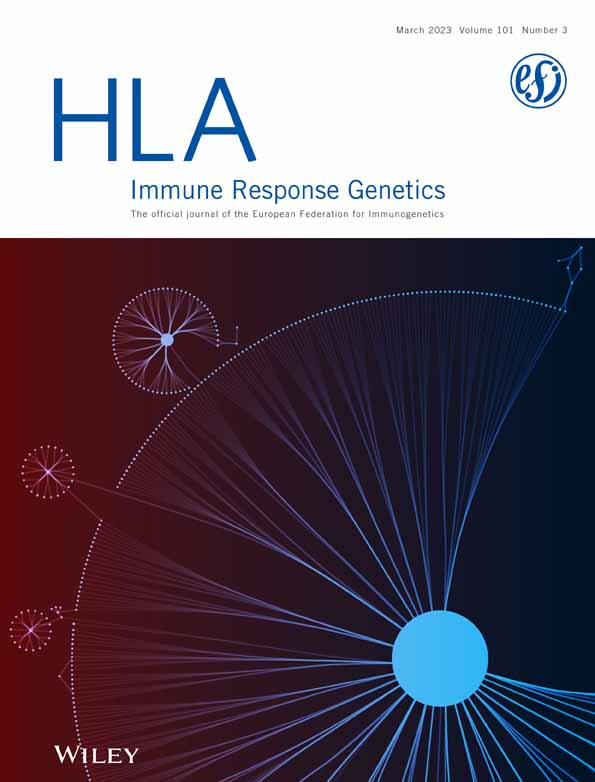Genetic landscape of human neutrophil antigen variants in India from population-scale genomes
Funding information: The Council of Scientific and Industrial Research, India, Grant/Award Number: MLP2001/GenomeApp
Abstract
Antibodies against human neutrophil antigens (HNAs) play a significant role in various clinical conditions such as neonatal alloimmune neutropenia, transfusion-related acute lung injury, and other nonhemolytic transfusion reactions. This study aims to identify the genotype and allele frequencies of HNAs in the healthy Indian population. Ten genetic variants in four human genes encoding alleles of HNAs class I–V approved by the International Society of Blood Transfusion—Granulocyte Immunobiology Working Party were used in the analysis. Genetic variants from whole genome sequences of 1029 healthy Indian individuals corresponding to HNA alleles were analyzed. The frequencies of the variants were compared with global population datasets using an in-house computational pipeline. In HNA class I, allele frequencies of FCGR3B*01, FCGR3B*02, and FCGR3B*03 encoding HNA-1a, HNA-1b, and HNA-1c were 0.07, 0.8, and 0.13, respectively. HNA class 3 alleles namely SLC44A2*01 (encoding HNA-3a) and SLC44A2*02 (encoding HNA-3b) were found at allele frequencies of 0.78 and 0.22, respectively. The frequencies of ITGAM*01 encoding HNA-4a and ITGAM*02 encoding HNA-4a were 0.95 and 0.05, respectively. Furthermore, allele frequencies of HNA class 5 alleles were 0.32 for ITGAL*01 (encoding HNA-5a) and 0.68 for ITGAL*02 (encoding HNA-5b). Interestingly, it was also found that rs2230433 variant deciding the HNA class 5 alleles, was highly prevalent (78.2%) in the Indian population compared with other global populations. This study presents the first comprehensive report of HNA allele and genotype frequencies in the Indian population using population genome datasets of 1029 individuals. Significant difference was observed in the prevalence of HNA5a and HNA5b in India in comparison to other global populations.
CONFLICT OF INTEREST
The authors declare that they have no competing interests.
Open Research
DATA AVAILABILITY STATEMENT
The data that support the findings of this study are openly available in Indigenomes at https://clingen.igib.res.in/indigen/.




